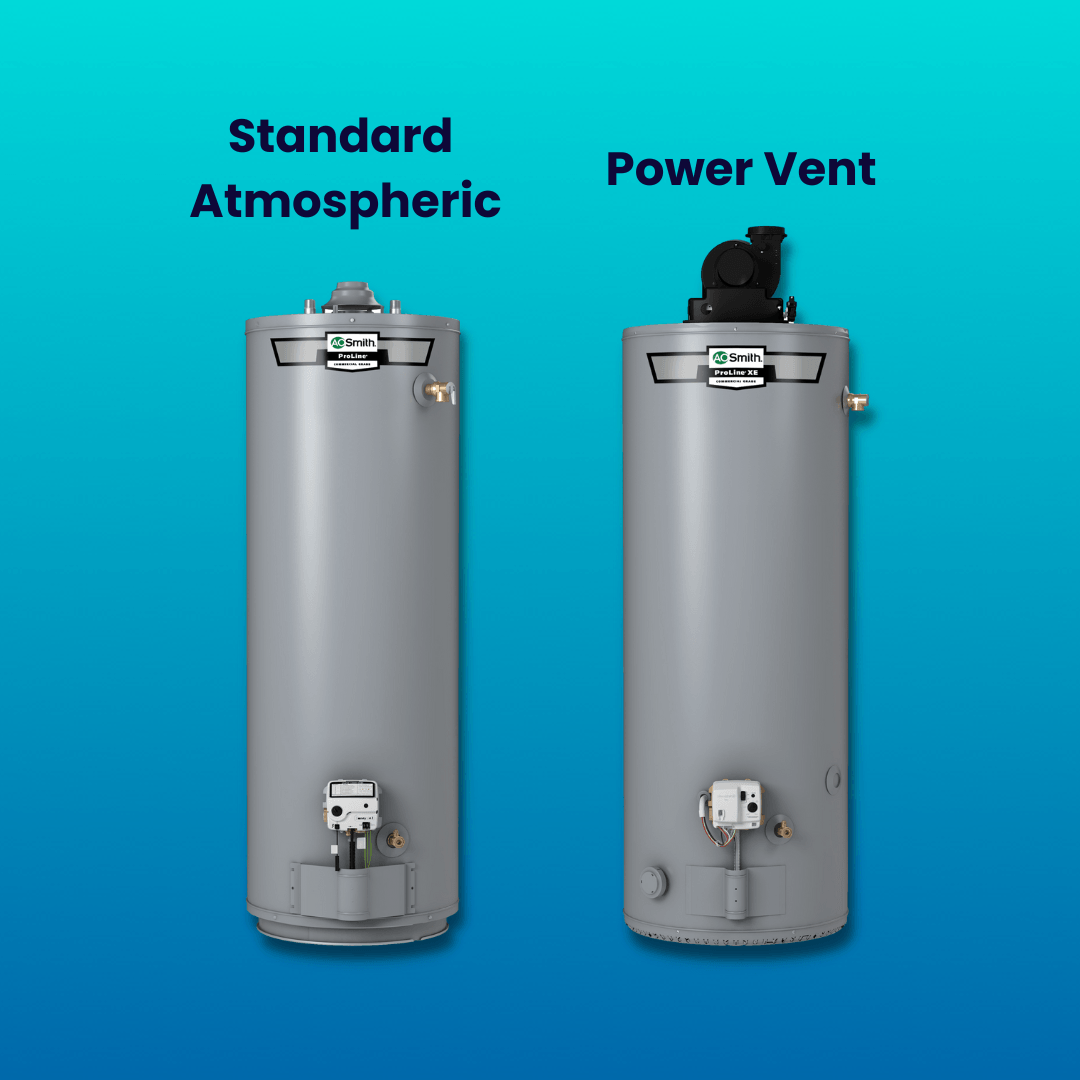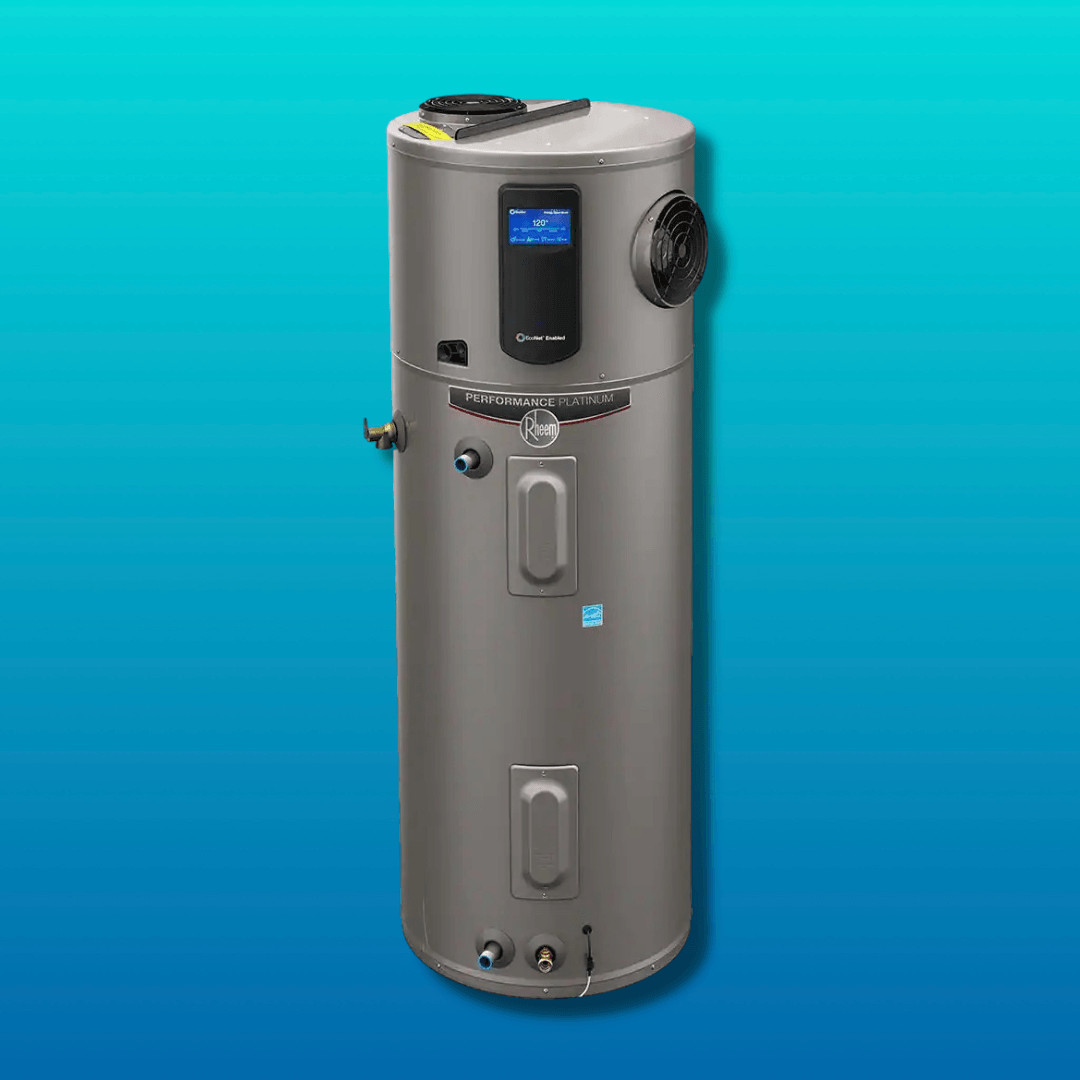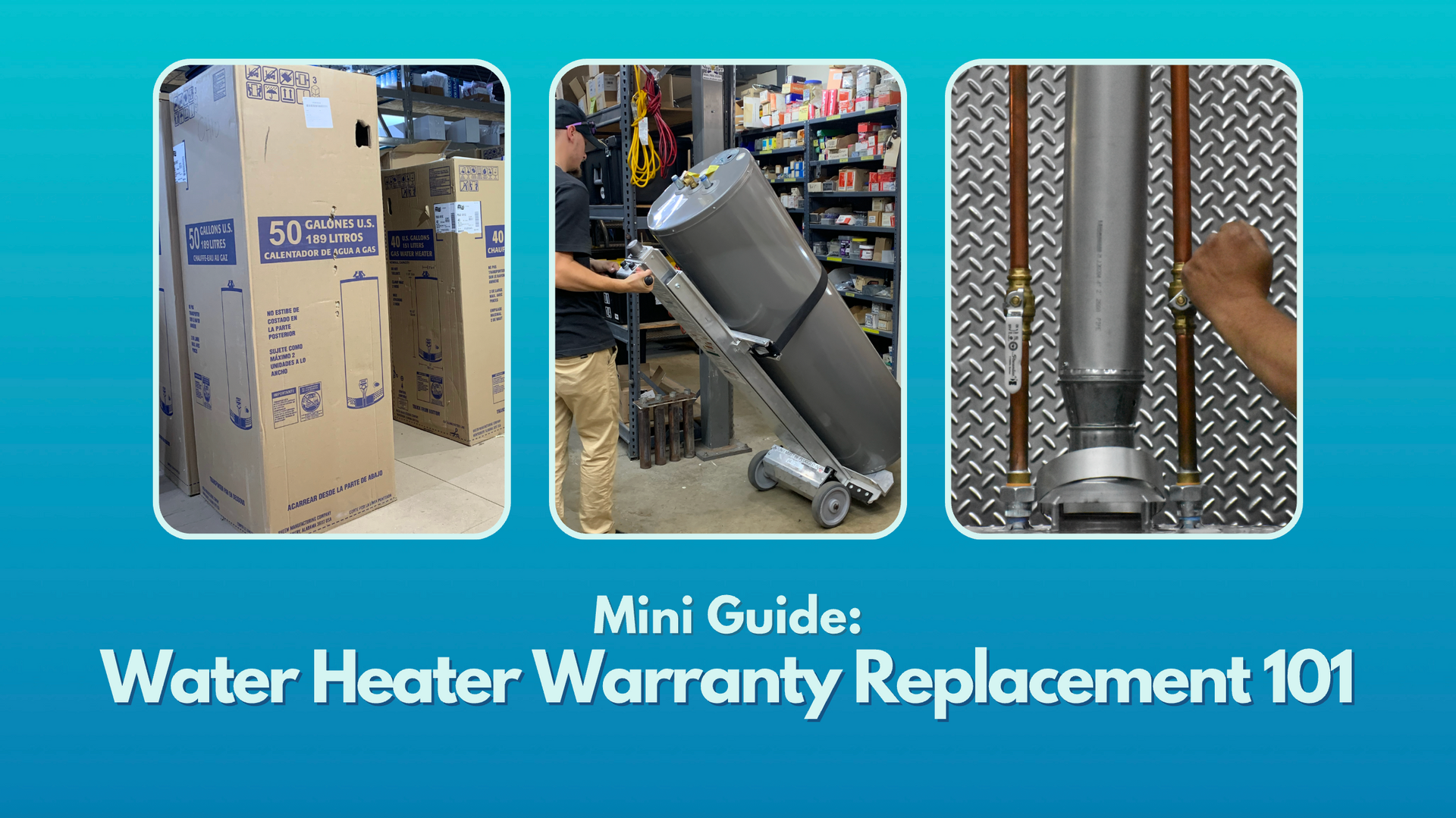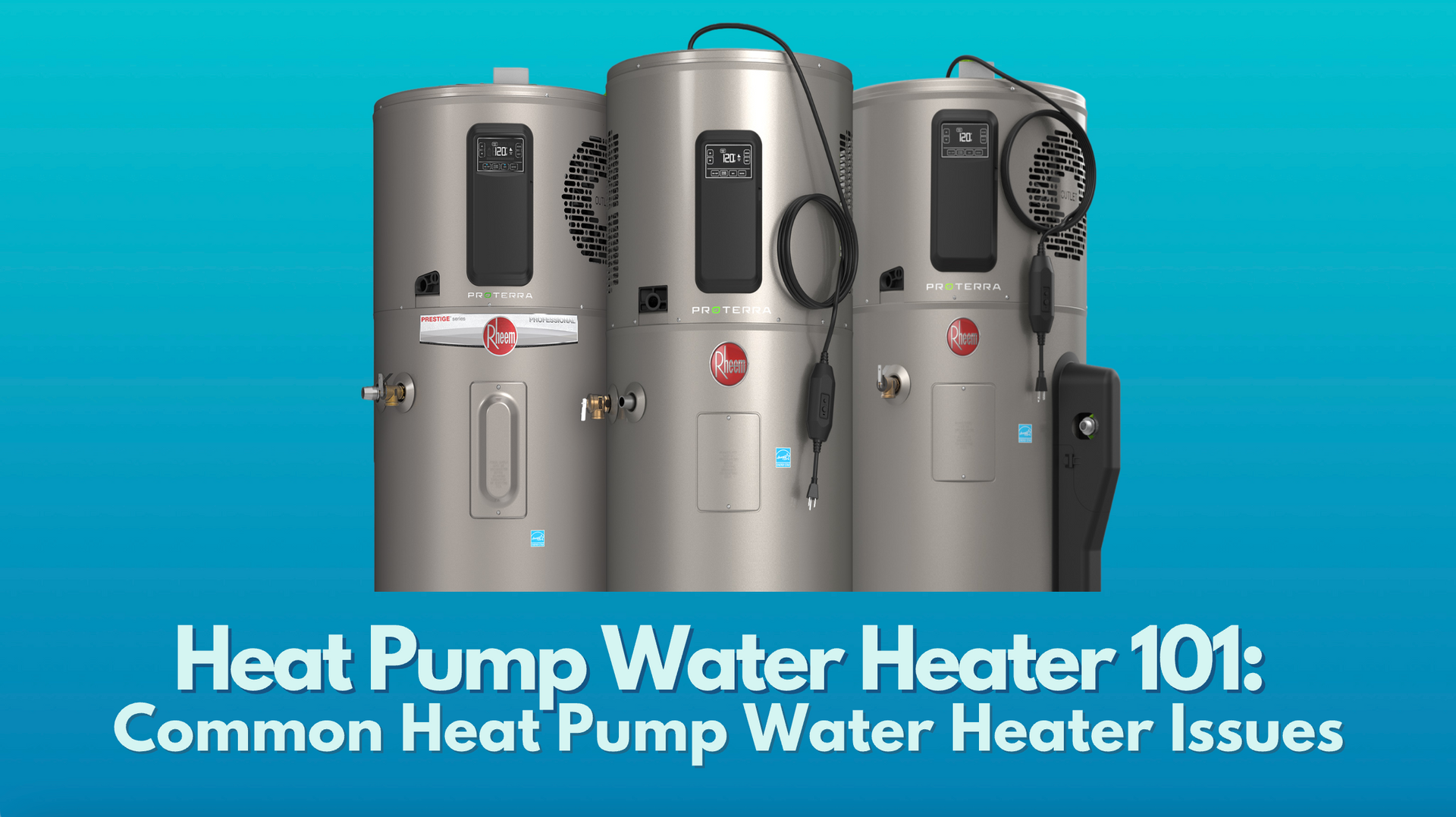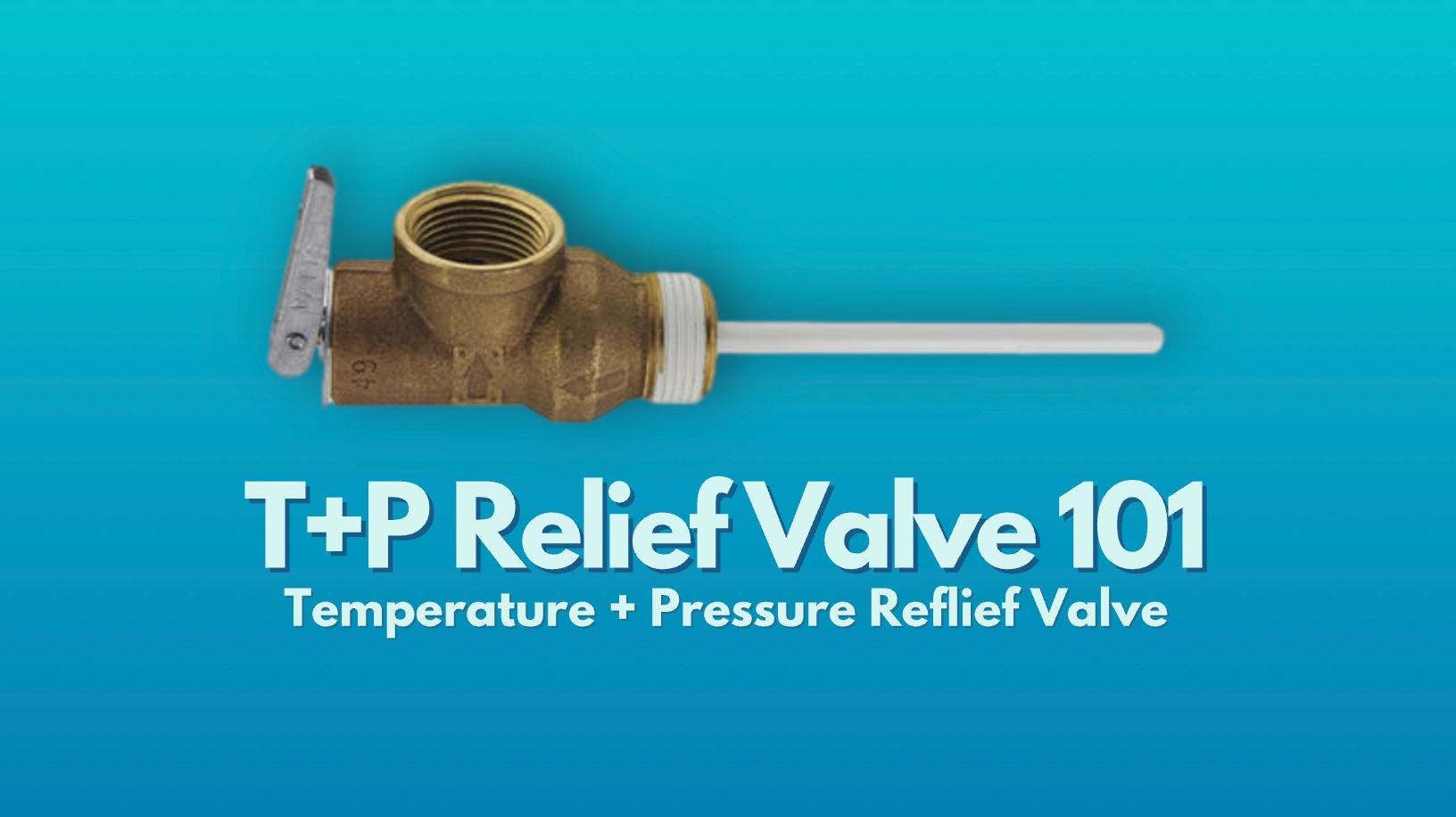Different Types of Water Heaters
Water Heater Options
Do you need a water heater replacement in your current home or a residential water heater installation for a new construction? The right water heater can ensure that the building receives reliable hot water efficiently. You have a lot of choices, and the options can overwhelm you at first. Learn a little more about the different types of water heaters to determine which water heater makes the most sense for your household.
Gas Water Heater
Over 50% of American homes use a gas water heater, making it the most popular fuel type available.
Gas water heaters use a gas burner to heat the water, releasing toxic fumes through one of the following ventilation systems:
- Atmospheric vent - standard, common ventilation that consists of a vertical vent connecting to the main ventilation system
- Power vent - fan-assisted vertical or horizontal ventilation
- Direct vent - ventilation led outside through an exterior wall or a roof
Gas water heaters tend to heat water quickly and effectively, and they still operate during a power outage (assuming a
pilot light instead of an electric ignition). Gas also costs less than electricity. However, gas water heaters often cost more than electric water heaters upfront.
Natural Gas Water Heater
Natural gas is the most common type of gas used to power a gas water heater. It’s one of the least expensive options available, but it’s also inconsistent and one of the least eco-friendly options.
Natural gas water heaters require an operational gas supply to the home. While most homes have a gas connection, those without may want to look into other options instead of paying the expense of installing the new gas line.
Propane (LP) Water Heater
Classified as a “renewable energy source”, propane mining isn’t as harsh on the environment as natural gas mining. Furthermore, we mine most propane domestically instead of buying it from other countries, making it less expensive to transport and unaffected by tariffs. Propane costs more than natural gas, though.
If you want to utilize propane, you will need to buy the appropriate hot water heater unless your current gas water heater includes a conversion kit to switch the unit from natural gas to propane.
Electric Water Heater
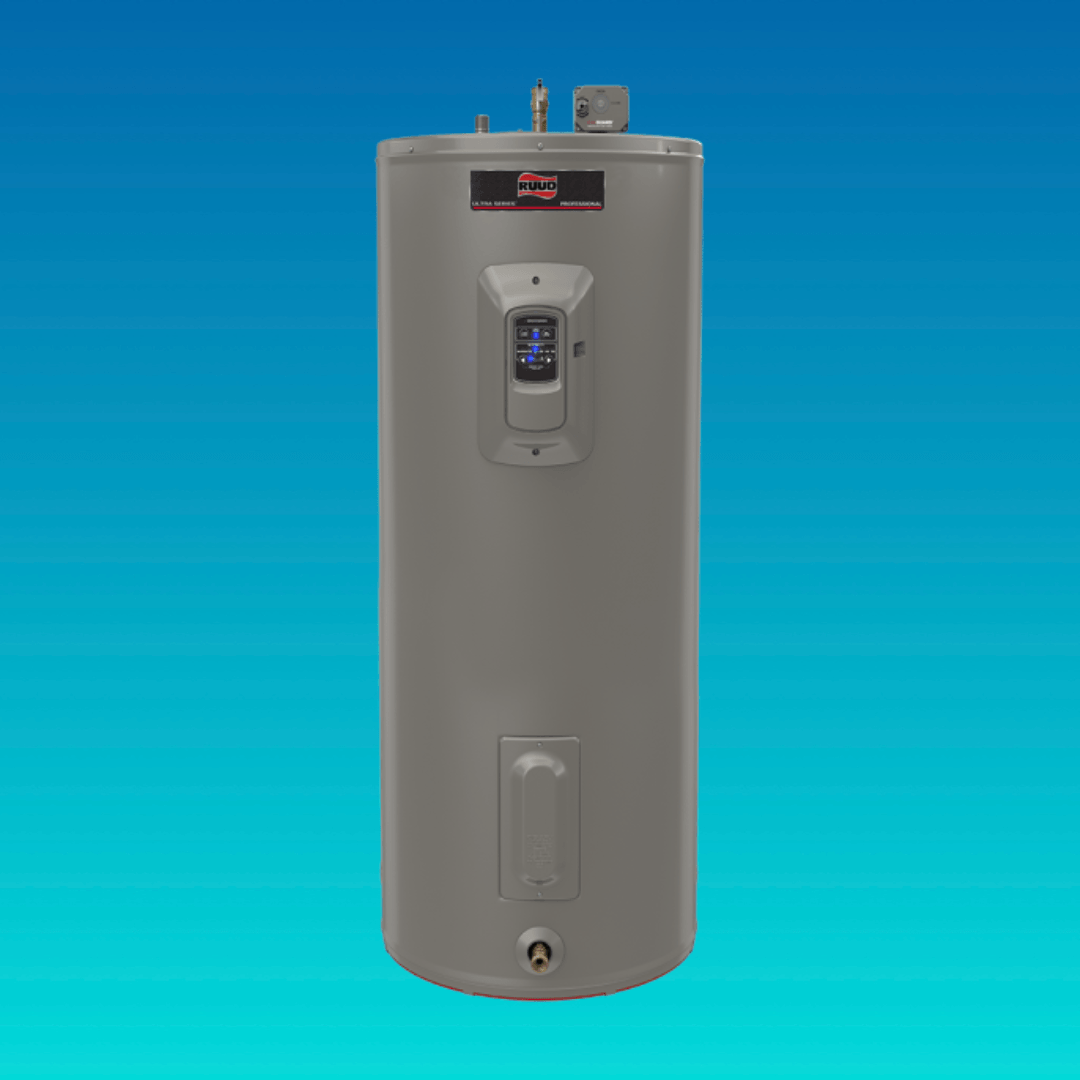
Electric water heaters are the second most popular water heater option available.
Electric water heaters generally offer better energy efficiency than gas water heaters and cost less upfront, but they don’t produce hot water as quickly.
The number of households with electric water heaters increases year after year to the point that they may eventually outnumber gas water heaters.
Electric water heaters heat water using electric heating elements. Modern electric water heaters contain two heating elements, therefore they also contain two thermometers - one to control each heating element.
Heat Pump Water Heater
A heat pump water heater offers extremely high efficiency. Heat pump water heaters move existing heat to warm up water instead of creating new heat, allowing it to get those high efficiency ratings.
Heat pumps require a significant upfront investment and have strict installation requirements.
Hybrid Water Heater
A hybrid water heater allows users to switch between electricity and heat pump settings. The heat pump setting should work in most situations, but the owner may switch to electricity during periods of high demand.
Hybrid water heaters only offer heat pump and electricity options - not gas. If you strongly prefer a gas water heater, you should look outside of heat pump water heaters.
Solar Water Heater
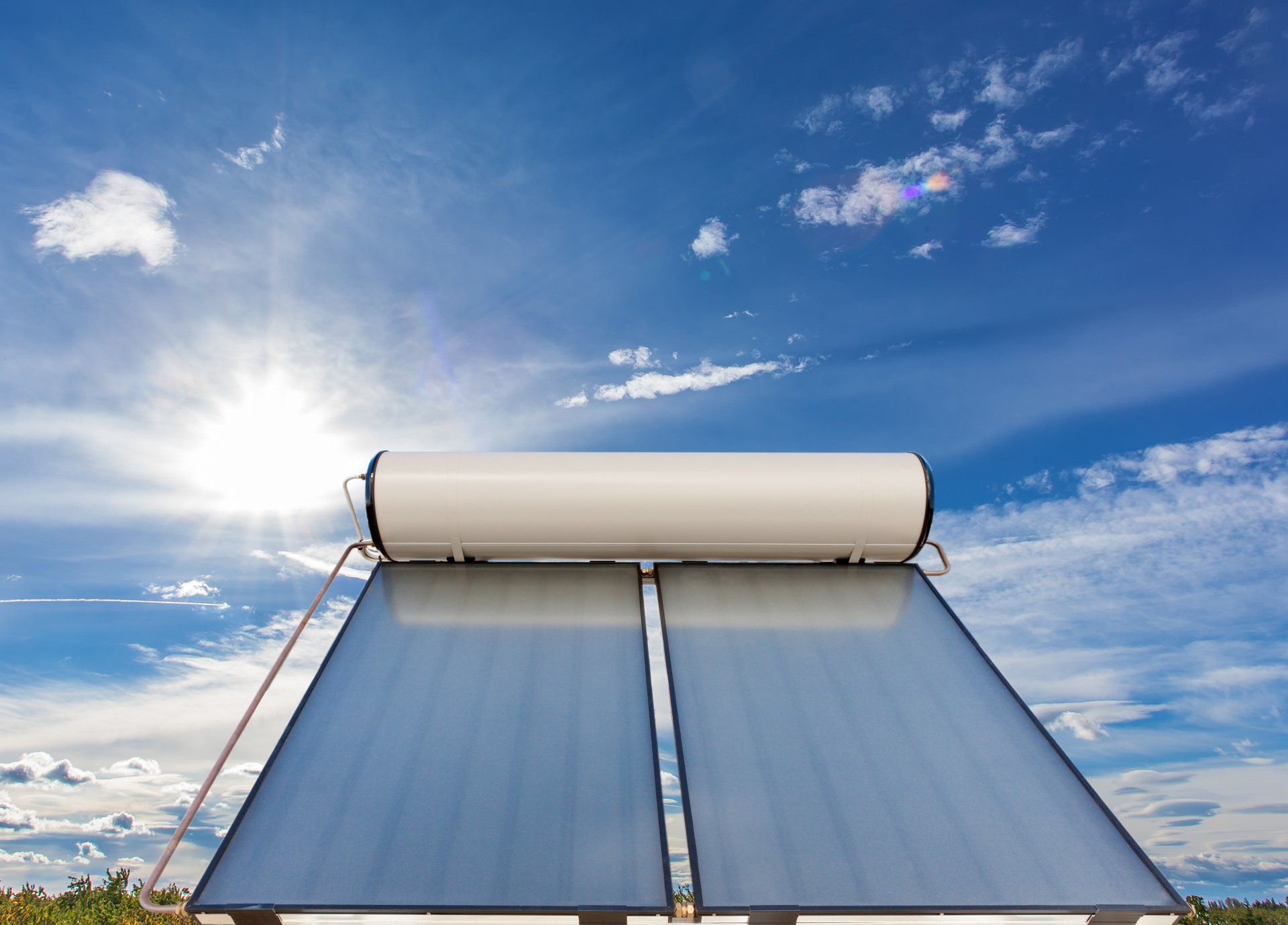
A solar water heater collects energy from the sun to warm water. Consumers can choose between an active solar water heating system or inactive solar water heating system, along with numerous other options.
Solar water heaters offer efficiency rates comparable to the rates of a heat pump water heater (with as much if not more of initial investment requirement). Solar water heaters usually include a backup energy source, which can be either electricity or gas.
Indirect Water Heater
An indirect water heater uses heat from an existing boiler or furnace to heat water running through a heat exchanger inside of the water heater.
Indirect water heaters often offer better energy efficiency than a conventional water heater (assuming it’s connected to a high efficiency boiler) and don’t require additional ventilation, however, they also require a storage tank.
Tank Water Heater Vs. Tankless Water Heater
The vast majority of residential water heaters use a water storage tank. Others heat water on demand to eliminate the need for a tank.
Tankless water heaters come with a number of
benefits over conventional water heaters:
- Compact size - a tankless water heater comes in a much more compact size, which fits in more places throughout the house.
- High energy efficiency - tankless water heaters provide on average improved energy efficiency compared to a storage water heater by 8% - 14%.
- Endless hot water - no cold water once you run out of cold water in the storage tank.
- Longevity - a storage tank water heater last 10 - 15 years, while a tankless water heater lasts 20+ years.
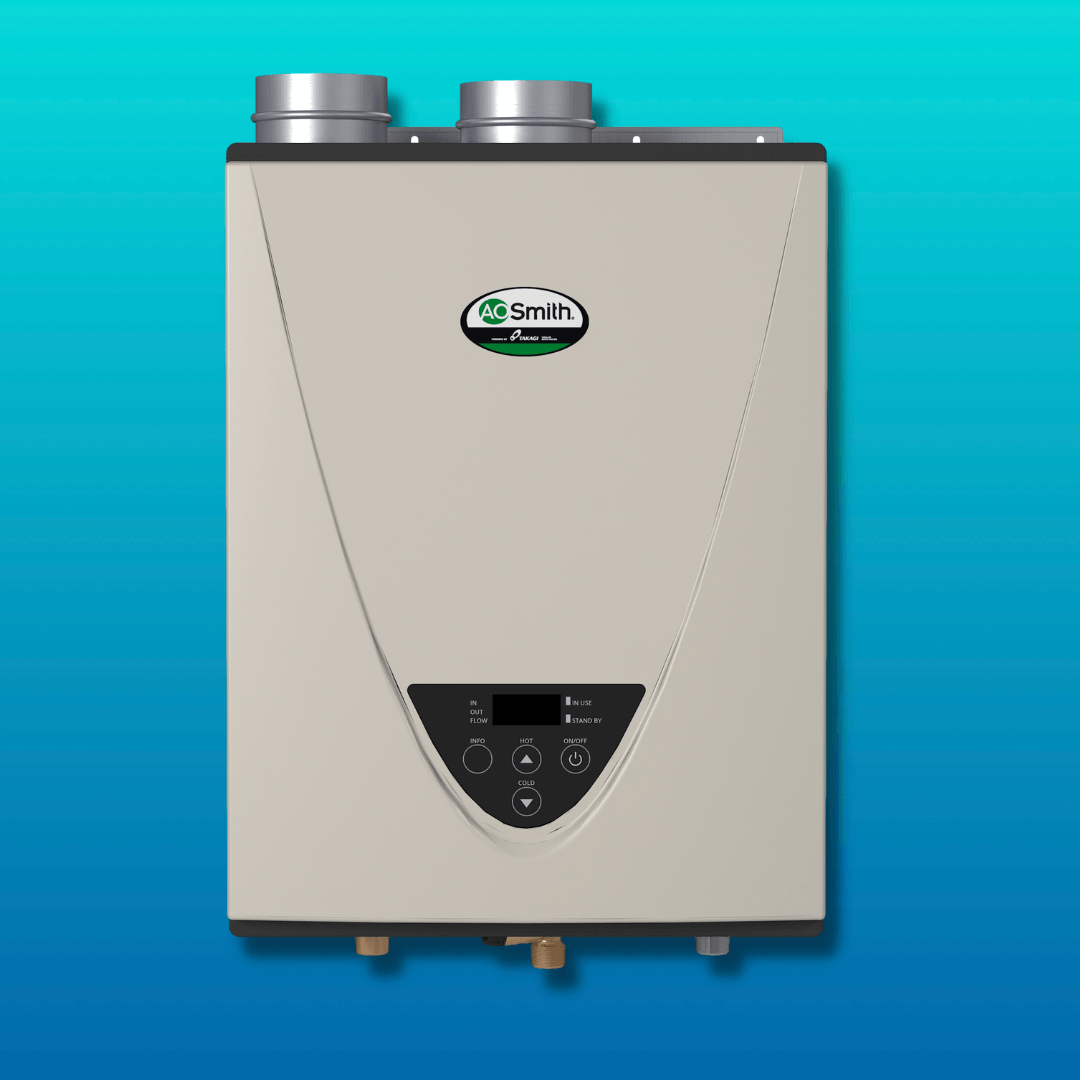
You will have the option to choose among an electric tankless water heater, condensing gas tankless water heater, and non-condensing gas tankless water heater.
Condensing tankless gas water heaters use heat from the operation process to contribute to the water heating, allowing for higher energy efficiency. A condensing water heater can do this with the help of a second heat exchanger. Non-condensing units have energy efficiency rates similar to that of electric water heaters.
Residential Water Heater Vs. Commercial Water Heater
All buildings need water heaters, whether they are residential, commercial, or industrial. Residential water heaters typically serve single-family homes, some small multi-family dwellings, or small commercial properties. Larger commercial buildings, apartment complexes, and warehouses will likely need a commercial water heater or boiler.
Commercial water heaters require more energy than residential water heaters, as well as further considerations for installation and maintenance. For further information on commercial water heaters, be sure to check out our article series on commercial water heaters:
Water Heater 201.
U.S. Water Heating Solutions
Whichever new water heater you choose, U.S. Water Heating Solutions can offer you an array of services, from water heater installation to water heater maintenance programs and water heater repair throughout the duration of the life of the water heater.
Contact U.S. Water Heating Solutions at 833-879-4776 or request a quote to learn more.




